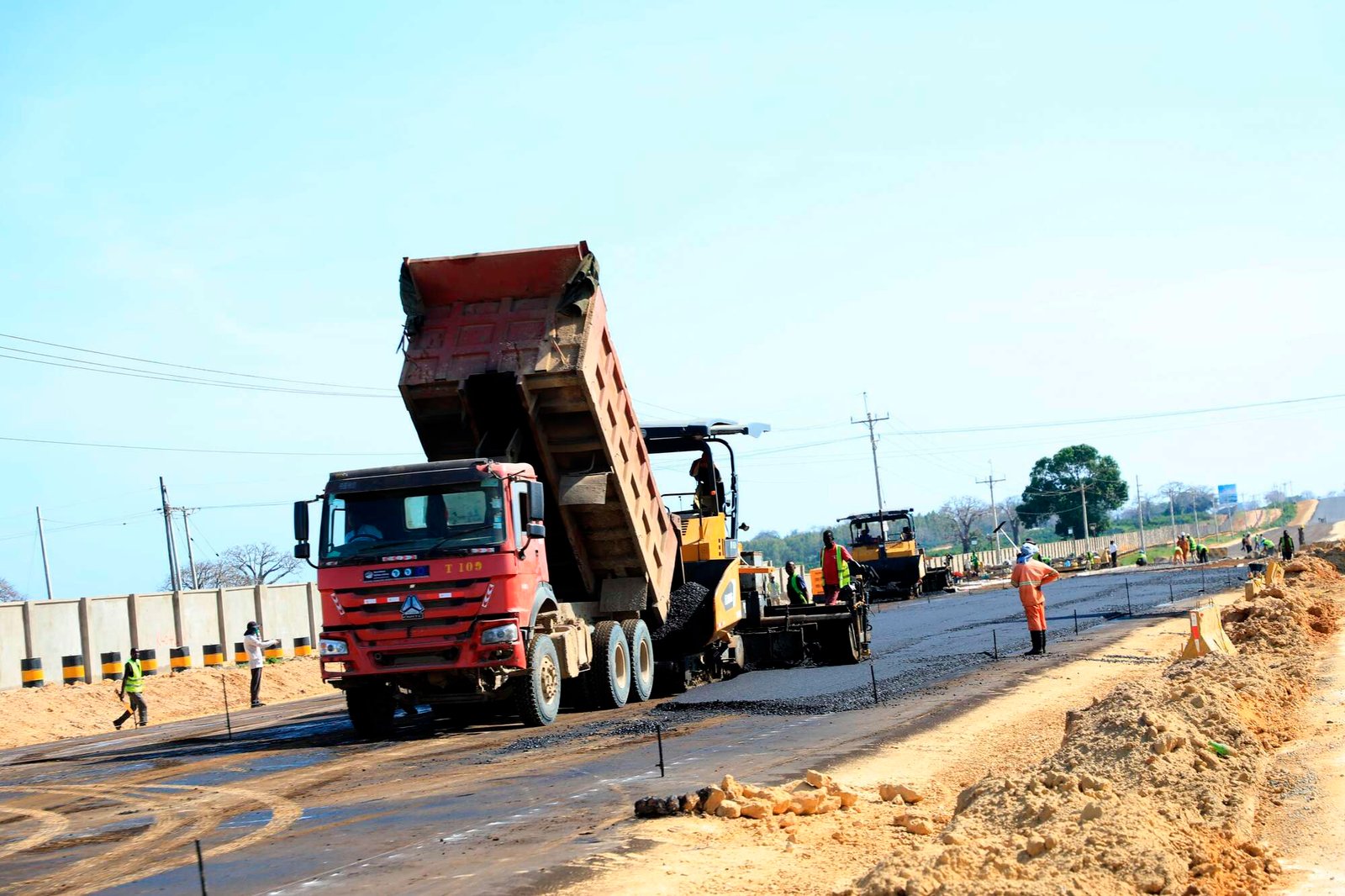[ad_1]
Economy
Roads, electricity projects get steep cuts in Ruto mini budget
Wednesday February 08 2023
The ongoing construction of the Mtwapa- Kilifi Road at Vipingo area in Kilifi County in this photo taken on 6th December 2022. PHOTO | KEVIN ODIT | NMG
Roads and energy projects have suffered the steepest cuts in President William Ruto’s budget reorganisation which slashed Sh106.3 billion from the development budget but increased recurrent spending in various offices including the State House.
The road transport budget was trimmed by Sh47.29 billion while the budget for power generation, transmission and distribution fell by Sh40.56 billion as Ruto’s administration moved to tighten government purses.
The supplementary budget delivered on Tuesday has however achieved a net saving of Sh14.07 billion, missing by far the Sh300 billion cut that the President had promised last November.
Capital spending mainly meant for development projects, has been cut from Sh715.35 billion to Sh609.07 billion as the State scaled down the targeted completion rates for projects such as roads, bridges and hospitals.
But the current budget, which is mainly for civil servants’ salaries, domestic and foreign interest payments, pensions and fuel costs for the government’s fleet of vehicles, increased by Sh92.22 billion from Sh1.403 trillion to Sh1.496 trillion.
The Executive Office of the President and the office of the Deputy President Rigathi Gachagua have seen their budgets rise by Sh8.35 billion and Sh450.85 million respectively.
“The allocation for recurrent expenditure has increased to Sh24.1 billion on account of additional funding for operation and maintenance under State House, Office of the Deputy President and the Nairobi Metropolitan Services programmes,” said the Treasury.
The newly created office of the Prime Cabinet Secretary, under Musalia Mudavadi, has been allocated Sh751.91 million.
The budget for construction of roads and bridges was slashed from Sh103.47 billion to Sh77.94 billion as the State scaled down the number of kilometres for most of the ongoing projects by as much as 75 percent.
The number of kilometres of roads to be rehabilitated has also been scaled down as the budget for this activity was reduced from Sh39.24 billion to Sh17.79 billion.
The government has also scaled down on several key programmes within the energy sector such as the number of customers to be connected to the grid, the hospitals to be connected to power and the number of stand-alone solar home systems to be installed.
Read: President Ruto cuts current budget spending by Sh14bn
The State Department for Interior has also been given a Sh31.44 billion cut, with the main item being policing service with a Sh20.95 billion cut.
Ministry of Water and Irrigation will have to do without Sh24.24 billion. About Sh10.56 billion has been slashed from water and sewerage programmes.
The National Intelligence Service (NIS) has also received a Sh10 billion cut on its budget to Sh36.13 billion. The cuts relate to security intelligence gathering.
Other major cuts are from the Ministry of Health (Sh9.04 billion) and Sh7.93 billion from the budget of the state department of housing.
The National Police Service made it to the list of top gainers with an additional Sh24.4 billion, which has been justified as one to cater for personnel emolument and operations and maintenance expenses.
The biggest gainer is the Ministry of Petroleum and Mining, which was added Sh41.74 billion, mainly for fuel price stabilisation, to take the total budget to Sh66.4 billion.
“This reflects an overall net increase of Sh41.7 billion mainly on account of additional funding of Sh42.7 billion for oil market price stabilisation in the current expenditure and a reduction of Sh801.4 million in capital expenditure due to rationalization,” said Treasury.
Teachers Service Commission has been added Sh6.4 billion to cater for the recruitment of teachers, taking the total budget to Sh304.8 billion.
The State Department for crop development has been added a net of Sh25.1 billion mainly to cater for maize flour and fertilizer subsidy, payment of sugarcane farmers’ arrears and maintenance of Nzoia Sugar Factory.
Dr Ruto faces a thin fiscal space to roll out his policies after his predecessor Uhuru Kenyatta increased public borrowing to fund infrastructure projects.
Read: Sh300bn budget cuts await CSs
Public debt hit Sh9.145 trillion last December, against the allowed limit of Sh10 trillion, leaving Dr Ruto’s administration with little room to borrow.
[ad_2]
Source link



